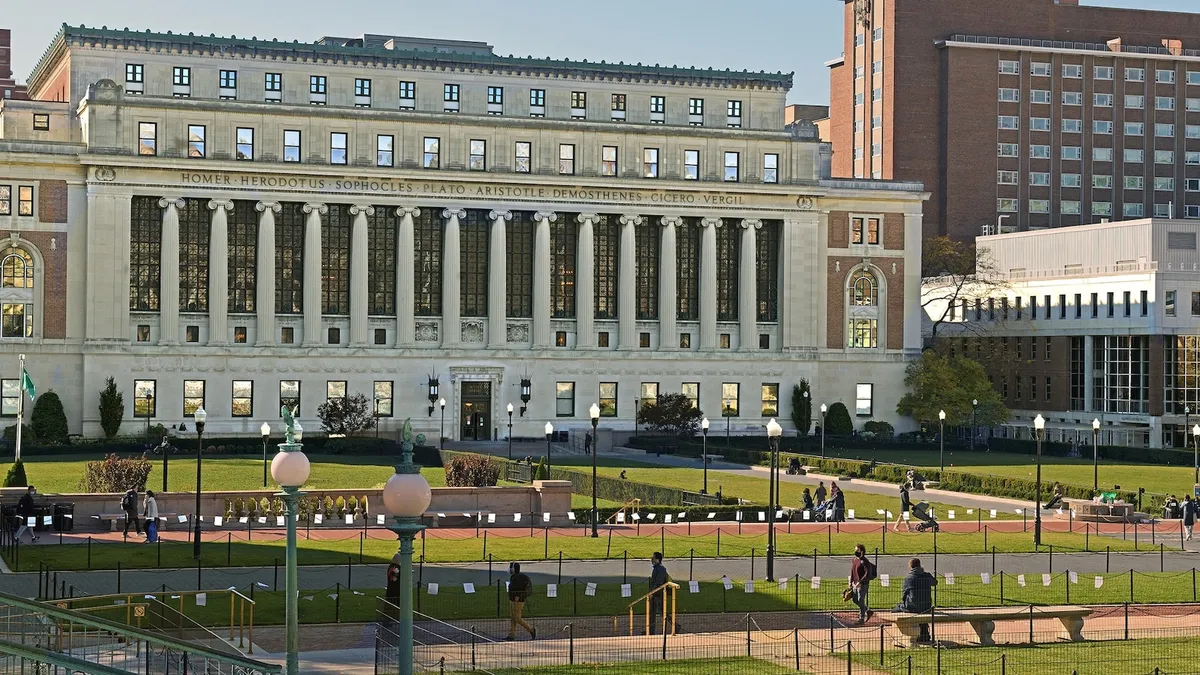
On Saturday night, agents from Immigration and Customs Enforcement (ICE) arrested Mahmoud Khalil, a prominent Palestinian activist and leader in the encampment movement at Columbia University. According to attorney Amy Greer, the arrest was made under the pretext that Khalil's student visa had been revoked. However, Greer clarified on Sunday that Khalil is in the United States on a green card, and not on a student visa, contradicting ICE’s claims.
Despite informing ICE agents of his legal status, Khalil was detained. Greer reported that during a phone conversation with ICE, the agents abruptly hung up on her, indicating a troubling disregard for due process. "We are currently challenging Khalil's arrest, but we have been unable to determine his current location," Greer stated, highlighting the lack of transparency in the detention process.
In a related development, Secretary of State Marc Rubio shared an article about Khalil on social media platform X, asserting that the U.S. government would revoke the visas and/or green cards of individuals supporting Hamas in America, paving the way for their deportation. This statement has raised concerns among advocates who view it as part of a broader trend of governmental repression against political dissent.
In response to Khalil's detention, Greer’s legal team filed a habeas corpus petition challenging the validity of his arrest. However, the exact whereabouts of Khalil remain unknown. His wife, who is eight months pregnant and a U.S. citizen, has also been searching for him. She was unable to locate Khalil at an ICE facility in Elizabeth, New Jersey, where he was reportedly transferred, and there are indications he may have been moved to Louisiana.
Khalil's arrest comes amidst a climate of increasing repression of student activism and political expression in the U.S., particularly at Columbia University, where students have been openly critical of Israel's actions in Gaza. Greer emphasized that the U.S. government appears to be utilizing immigration enforcement as a means to stifle such dissenting voices.
The timing of Khalil’s arrest coincides with recent statements made by former President Donald Trump, who threatened to withdraw federal funding from universities that permit protests deemed illegal. In a post on Truth Social, Trump declared, "All Federal Funding will STOP for any College, School, or University that allows illegal protests," further escalating fears about the potential consequences for student activists.
In light of the reports regarding ICE's presence around campus, Columbia University issued a statement affirming its commitment to following the law. The university emphasized that law enforcement must have a judicial warrant to enter non-public areas of campus, reaffirming its dedication to supporting its student body and campus community amid these troubling developments.
The arrest of Mahmoud Khalil raises significant questions about the intersection of immigration enforcement, political expression, and the rights of students in the United States. As the situation unfolds, advocates are calling for greater transparency and accountability from ICE and the government regarding the treatment of activists and the safeguarding of free speech on campus.